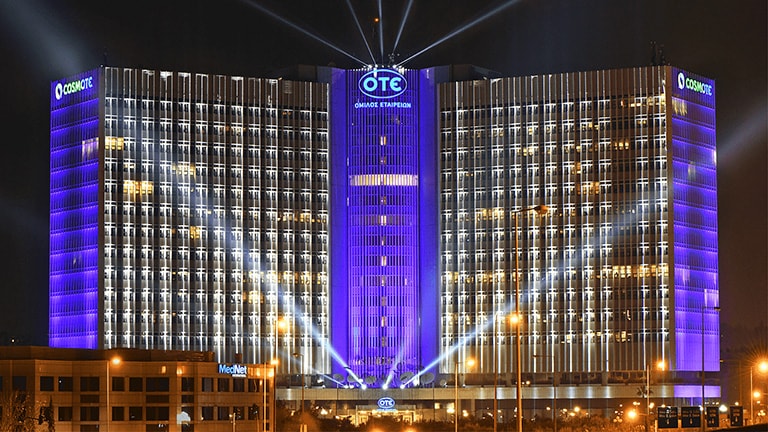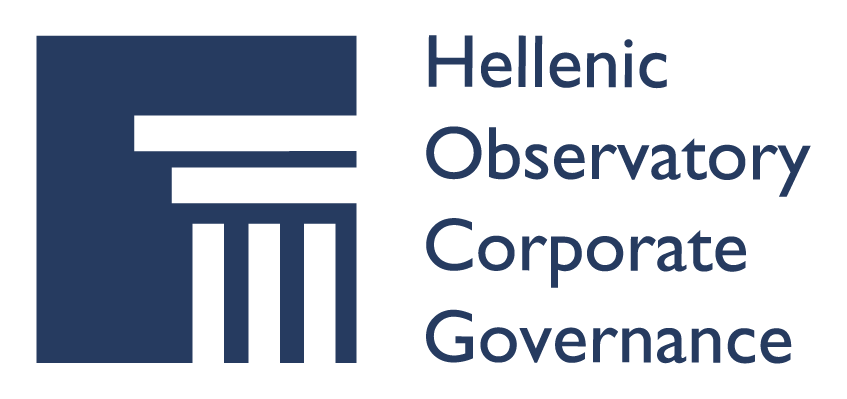Greece and most countries of the Southern part of Europe were severely hit by the 2008 financial crisis that started with the collapse of Lehman Brothers- the fourth-largest U.S. investment bank at that time.
Since then, after almost a decade of recession, austerity and standoffs with the European Union, countries that affected by the crisis seem to have emerged from investment exile and appear in many investors’ portfolios. Greece’s creditors (mainly the EFSF and the IMF), imposed a number of corporate governance reforms; especially in the four systemic Greek Banks (e.g. independent non-executives directors have been elected in the four systemic banks in Greece) and with the Hellenic Corporate Governance code (issued by the Hellenic Corporate Governance Council) in 2013, in an attempt to improve transparency and audit practices. Nevertheless, the recent incidents of companies in the Corporate Sector (like Folli Follie Group, Ellaktor, DEI) have highlighted the questionable standards of corporate governance in Greece. The insufficient implementation of the corporate governance codes and principles, in hand with the effects of the economic crisis, have led these companies to a very serious situation. It seems that reforms have been incorporated more efficiently in the economic areas under the direct influence of Greece’s creditors (e.g. systemic Banks), whereas areas outside of their immediate reach are lagging behind with a slower pace of adoption.
Nevertheless, Greece has recently become an attractive investment destination not only for foreign state-owned enterprises (e.g. COSCO) but also for institutional and activist investors. Amber Capital[1], an activist investor fund, has developed a position in the Greek economy consisting of shares in well-known and market leading companies in different industries, like ‘OTE Group’ (the largest mobile and broadband network operator in Greece with revenues of around 1,5 B.), ‘Ellaktor’ (the largest construction group in Greece with revenues of around 1,8 Β) and also one of the leading Greek banks[2]. Ellaktor made headlines last year with the proxy battle for control between powerful local business clans and international investors[3]. CVC Capital Partners[4], a leading British private equity firm, which manages 70 billion dollars of assets has a strong position in Greece especially in the Healthcare industry. The fund bought in 2018, the 70,38% of Hygeia private hospital[5] and they currently looking to expand their position in the industry[6]. Moreover, Oaktree Capital Management[7], an American global asset management firm specializing in alternative investment strategies, has also acquired the 100% of IASO group on the 4th of July 2019[8]. On the same wavelength, Marathon Asset Management LLP said back in February that the country still presents “a significant value opportunity”, even though the recovery is still taking longer than expected[9].
Turning our focus to OTE Group, the recent resignation of Mr. Tabourlos, has led to a chain of events. More specifically, Amber Capital (holds 2% of COSMOTE) has formally requested the election of Mr. Alberto Horcajo in May 23, 2019, a former CEO of ‘Telxius Telecom’ and CFO of ‘Telefonica Brasil’, as an independent non-executive deputy chairman and board member. According to the Financial Times, Mr. Horcajo’s candidacy was also backed by Institutional Shareholder Services, a leading proxy adviser[10]. As Giuseppe di Mino (Amber Capital’s managing director) indicated in a letter to the “Deutsche Telekom” (holds 45% of the operator), OTE Group might set an example for other companies to follow by electing Mr. Horcajo to the board.

However, in the extraordinary Annual meeting of the company, on the 12th of June 2019, Mr. Horcajo fail to obtain the necessary votes for his election, and instead, Mr. Eelco Blok, an alumnus of Erasmus University Rotterdam and Delft University of Technology, was elected with 73,6% of the votes. Mr. Eelco Blok has served as CEO & Chairman-Management Board at KPN NV, and his candidacy was supported by Deutsche Telekom.
Regarding the independence of the board there are two important parameters that must be considered. Firstly, the issue of duality (when the CEO is also the Chairperson of the board), versus separation of the Chairperson and CEO, and secondly, the number of externals- and most importantly independent- board members.
The issue of duality has been in the focal lens of researchers for the last decade with inconclusive results. The Financial Reporting Council published the 2018 UK Corporate Governance Code[11], discourages role duality. It should be noted that the most important difference between the role of the chairperson and the CEO, is that the chairperson heads the board, arranges board’s agenda and the information directors require, and acts as the main representative of the shareholders to whom ultimately answers to. In contrast, CEO runs the company in daily basis, and provides strategic guidance and direction to the board ensuring that corporate mission and objectives are met. The literature suggests that in the case of duality specific dangers may occur, as excessive power to the CEO could possibly undermine board authority, lead to power concentration and reduced monitoring. Furthermore, the Hellenic Corporate Governance code advocates that in the case that companies adopt a duality structure, an independent non-executive vice-chairperson should be elected in order to monitor the Chairperson activities.
In the case of OTE, we can see that Mr. Michael Tsamaz has been simultaneously Chair and CEO of the company since the 3rd of November 2010[12], while during that period, five different board members have served as independent non-executive directors. Here there is a clear imbalance between the long tenure of the Chair/CEO and the independent directors (on average they were serving the board for less than 20 months).
In Figure 1, the second parameter regarding board independence is highlighted. The number of independent non-executive directors of OTE was 4 for the 2009-2012 period. The next couple of years the number rose to 5, while from 2015 to 2017 the number dropped to just 2 independent board members. In 2018, the number of independent non-executive directors increased to 3.
The Hellenic Corporate Governance Code (2013)[13] indicates that the number of independent non-executive directors should be at least one third of the members of the board. However, this principle has not been followed, as for the years 2015-2018 the number of independent non-executive directors was below the code’s recommendation (at least 4 independent directors for a 10-member-board).
Figure 1. OTE Group Number of Independent non-executive directors and board size (2009-2018) [14]

A related issue that affects the overall degree of independence on boards is the tenure (duration of service) of board members as well as succession policies (member election and reelection appointments etc). The Hellenic Corporate Governance Code states that dependence exists if a member “has served on the board for more than 12 years from the date of his/her first election”.
As we have pointed out earlier in the case of OTE, and looking at the HOCG database, Mr. Tabourlos has served as an independent (non-executive) director from 2003 to 2019 (almost 17 years). Thus, two important concerns could be raised: a) for the years 2016-2018 the number of independent non-executive directors in OTE board was lower than it appeared, and b) the board should have considered that Mr. Tabourlos independency has been negated (after 2015) as he has served the board for more than 12 years (if we do adopt the Code’s suggestions). It seems strange that OTE Group, which has a nomination committee fails to identify and appoint a suitable candidate for Mr. Tabourlos position on the board.
The issues of the succession policy and the annual elections have been highlighted by many global advisors. Philip Vernardis, Vice President of the Asset Stewardship team at State Street Global Advisors[15], which is the world’s third largest asset manager with nearly $2.8 trillion in assets under management (as of 31st March 2019) said to the HOCG:
“Well-governed companies are better positioned to navigate challenging economic conditions while protecting shareholder interests. In the past few years, Greece has taken several positive steps to enhance corporate governance. However, the lack of independence and gender diversity on boards is still significant when compared to other European markets. This has a negative impact on board quality and effectiveness.
Furthermore, without an annual director election process, shareholders are limited in their ability to hold directors accountable and improve board quality. In some listed companies in Greece no matter how dissatisfied shareholders are, they have to wait up to six years to hold board members accountable. Changing these rules would provide an effective mechanism to shareholders to fulfil their stewardship responsibilities and improve the quality of board oversight and company performance in the long-term.”
Thus, certain questions could be raised about the level of transparency and the corporate governance practices of the company. What would be the future of OTE? How transparency and corporate governance standards could be improved? More importantly what steps should the company take in addressing institutional investors raising demands for enhanced Corporate Governance practices? These important questions should be in the agenda and thoroughly discussed in the next board meetings of the company.
[1] Amber Capital (2019), About us {online}. Retrieved from: http://www.ambercapital.com/
[2] Financial Times (2019), Greece’s OTE faces activist push for board change {online}. Retrieved from: https://www.ft.com/content/e3315642-892e-11e9-97ea-05ac2431f453
[3] Financial Times (2019), Proxy battle looms over Greek conglomerate Ellaktor {online}. Retrieved from: https://www.ft.com/content/53c72d84-6e58-11e8-92d3-6c13e5c92914
[4] CVC Capital Partners (2019), About {online}. Retrieved from: https://www.cvc.com/about/our-firm
[5] News247 (2018), ΥΓΕΙΑ: Πουλήθηκε στο CVC έναντι 204 εκατ. ευρώ {online}. Retrieved from: https://www.news247.gr/epixeiriseis/ygeia-poylithike-sto-cvc-enanti-204-ekat-eyro.6630567.html
[6] Euro2day (2018), Γιατί «γκαζώνει» η CVC Capital για κλινικές {online}. Retrieved from: https://www.euro2day.gr/news/economy/article/1604772/giati-gkazonei-h-cvc-capital-gia-klinikes-.html
[7] Oaktree Capital Management (2019), About {online}. Retrieved from: https://www.oaktreecapital.com/about
[8] Iaso (2019), Ανακοίνωση αποτελεσμάτων της προαιρετικής δημόσιας πρότασης της εταιρείας «OCM LUXEMBOURG HEALTHCARE GREECE S.A.R.L.» προς τους μετόχους της εταιρείας «ΙΑΣΩ ΙΔΙΩΤΙΚΗ ΓΕΝΙΚΗ, ΜΑΙΕΥΤΙΚΗ-ΓΥΝΑΙΚΟΛΟΓΙΚΗ & ΠΑΙΔΙΑΤΡΙΚΗ ΚΛΙΝΙΚΗ – ΔΙΑΓΝΩΣΤΙΚΟ, ΘΕΡΑΠΕΥΤΙΚΟ & ΕΡΕΥΝΗΤΙΚΟ ΚΕΝΤΡΟ Α.Ε.» για την απόκτηση του συνόλου των κοινών, ονομαστικών, μετά ψήφου μετοχών τους {online}. Retrieved from: https://www.groupiaso.gr/pdf/%CE%91%CE%BD%CE%B1%CE%BA%CE%BF%CE%B9%CE%BD%CF%8E%CF%83%CE%B5%CE%B9%CF%82%20-%20%CE%94%CE%B5%CE%BB%CF%84%CE%AF%CE%B1%20%CE%A4%CF%8D%CF%80%CE%BF%CF%85%20%CF%80%CF%81%CE%BF%CF%82%20%CE%A7.%CE%91/%CE%91%CE%BD%CE%B1%CE%BA%CE%BF%CE%B9%CE%BD%CF%8E%CF%83%CE%B5%CE%B9%CF%82%202019/20190704%2004.07.2019%20%CE%91%CE%BD%CE%B1%CE%BA%CE%BF%CE%AF%CE%BD%CF%89%CF%83%CE%B7%20A%CF%80%CE%BF%CF%84%CE%B5%CE%BB%CE%B5%CF%83%CE%BC%CE%AC%CF%84%CF%89%CE%BD%20%CE%94%CE%B7%CE%BC%CF%8C%CF%83%CE%B9%CE%B1%CF%82%20%CE%A0%CF%81%CF%8C%CF%84%CE%B1%CF%83%CE%B7%CF%82.pdf
[9] Bloomberg (2019), Greek Tragedy for One Hedge Fund Is Not Enough Stocks to Buy {online}. Retrieved from: https://www.bloomberg.com/news/articles/2019-03-28/greek-tragedy-for-this-hedge-fund-is-not-enough-stocks-to-buy
[10] Financial Times (2019), Greece’s OTE faces activist push for board change {online}. Retrieved from: https://www.ft.com/content/e3315642-892e-11e9-97ea-05ac2431f453
[11] FRC (2018), The UK Corporate Governance Code Financial Reporting Council, London. {online}. Retrieved from: https://www.frc.org.uk/getattachment/88bd8c45-50ea-4841-95b0-d2f4f48069a2/2018-UK-Corporate-Governance-Code-FINAL.pdf
[12] Capital.gr (2010), OTE: Εκλογή του Μ. Τσαμάζ ως μέλος του Δ.Σ. {online}. Retrieved from: https://www.capital.gr/epixeiriseis/1079768/ote-eklogi-tou-m-tsamaz-os-melos-tou-d-s
[13] Hellenic Corporate Governance Council (2013), Hellenic Corporate Governance Code for Listed Companies {online}. Retrieved from: https://ecgi.global/download/file/fid/10134
[14] Hellenic Observatory of Corporate Governance www.hocg.eu
[15] State Street Global Advisors (2019), Who we are. {online}. Retrieved from: https://www.ssga.com/eu/gb/institutional-investor/en/about-us/who-we-are/overview.html
HOCG Editorial Team:
Mr. Michail Fygkioris is a Research Associate at the Hellenic Observatory of Corporate Governance. His primary research area is focused on the Hellenic Stock Market, Greek State-Owned Enterprises and Hospitals. He holds a degree in Economics from the University of Macedonia, and a Master’s degree in Business Innovation and Management from Birkbeck University.
Dr. Dimitrios N. Koufopoulos is the Founder and Director of Research on the Hellenic Observatory of Corporate Governance (HOCG). He is also the Director of the Global MBA programme at the University of London, Visiting Professor in the School of Law, Centre for Commercial Law Studies, Queen Mary University of London.
Mr. Konstantinos Athanasiadis is a Senior Research Associate at the Hellenic Observatory of Corporate Governance. He is also a Ph.D. Candidate at Birkbeck University, London. He holds a Master’s degree in Management from Brunel University and a degree in Economics from University of Macedonia. He works as an Associate Lecturer at Coventry University; London and he is member of the British Academy of Management.
